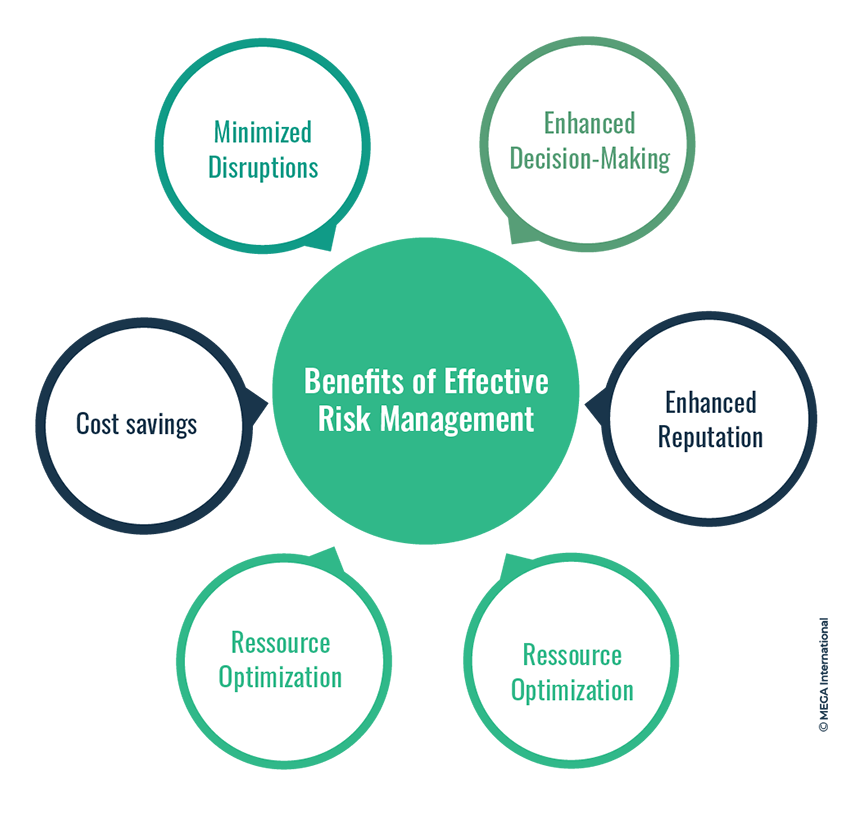Enhancing Company Efficiency Through the Importance of Risk Management
Enhancing Company Efficiency Through the Importance of Risk Management
Blog Article
Understanding the Significance of Risk Management in Service Success and Sustainability
In today's ever-evolving organization landscape, the value of Risk Management can not be understated. Let's unpack this complex topic, checking out how positive Risk Management contributes to the longevity and success of services.
The Principle of Risk Management in Service
Risk Management, a fundamental facet of service operations, lugs a significant weight in the success or failure of a company. Businesses employ Risk Management treatments to mitigate the damaging results of these risks. The principle of Risk Management is not a warranty versus Risk, however rather an important tool that promotes operational effectiveness and resilience in face of unpredictability.
Key Elements of a Durable Risk Management Method
Building a durable Risk Management strategy entails a number of crucial elements. Identification of prospective threats is the main step, complied with by a thorough analysis of these dangers. After recognizing the gravity of the threats, correct procedures should be prepared for Risk reduction. These actions can vary from diversification of resources to insurance coverage. An effective Risk Management method also entails consistent tracking and testimonial of the recognized threats and the performance of the control actions. The strategy ought to be flexible sufficient to suit changes in the business environment. Furthermore, the strategy needs to also involve training of the staff members to deal with unanticipated situations. All these components, when integrated properly, add to a durable Risk Management method.
Just How Risk Management Adds To Business Success

Case Researches: Successful Risk Management in Method

Future Trends in Risk Management and Their Effects for Services
As the worldwide company landscape remains to evolve, so too does the area of Risk Management. Future patterns suggest a shift towards proactive instead of responsive strategies, with businesses significantly seeking to identify and minimize risks before they take place. The unification of technology, especially AI and big information analytics, will certainly play a crucial role in this improvement. These tools can provide real-time understandings, internet enabling swift and educated decision-making. Furthermore, environmental, social, and governance (ESG) threats are forecasted to rise in importance, showing an expanding societal issue for sustainability. Businesses that adapt to these trends and integrate them into their Risk Management approaches will likely be far better geared up for success and sustainability in the unclear future.

Final thought
To conclude, recognizing the value of Risk Management is pivotal for business sustainability and success. Proactive recognition, assessment, and mitigation of prospective hazards not just safeguards resources and earnings, yet additionally promotes resilience. Efficient Risk Management approaches enhance functional effectiveness, customer depend on, and innovation. Through real-world case studies and future fads, it's noticeable that a durable approach to take the chance of Management is vital in navigating today's complex company atmosphere.
Companies utilize Risk Management treatments to reduce the unfavorable results of these risks. The concept of Risk Management is not an assurance versus Risk, but rather a crucial device that advertises functional effectiveness and strength in face of changability.
Identification of potential threats is the key step, complied with by a comprehensive evaluation of these risks (importance of risk management). After comprehending the gravity of the dangers, correct steps must be intended for Risk reduction. An efficient Risk Management strategy also includes consistent surveillance and testimonial of the identified threats and the efficiency of the control procedures
Report this page